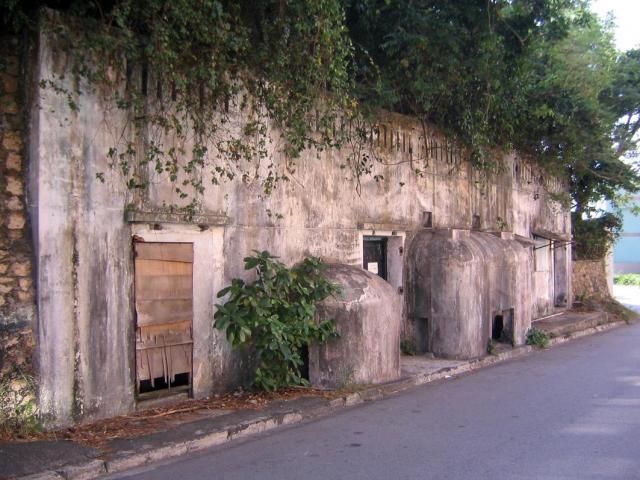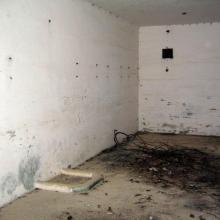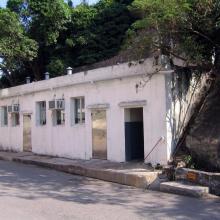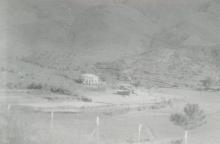Has anyone any idea what this building was for? The large concrete protusions at the front look like some sort of ovens or furnaces, and there seem to be many ventilation slits up near the roof. The window at the far end has a canopy suggestiong that it was some sort of shop window, probably dating from a relatively recent use..
Chung Hom Kok building
Primary tabs

Submitted by Andrew Suddaby
Date picture taken (may be approximate):
Thursday, November 30, 2006
Gallery:
Connections:
- Chung Hom Kok building shows Place Chung Hom Kok Battery buildings [c.1940- ]




Comments
Chung Hom Kok Battery Buildings
Greetings! I must first declare I am no military expert, so here is my guess about these buildings.
In its natural state, this area was covered by low vegetations facing west and open water. This was long before the present road and hospital were built. In order to hide their presence, they built them by cutting into the hillside and restored vegetations for the front. The two large concrete protusions at the front of one building would be some defensive armour given the thickness of the concrete reenforced with steel bars too I think. The two square openings would be where I stick my machine-gun out to rest on the flat surface outside. The ventilation slips near the roof give officers some relief from the hot sun, and stored ammunitions don't like heat either. Corrections welcome. Regards, Peter
Chung Hom Kok Battery Buildings.
The building was originally the Engine Room for the power supply to the two DEL's of the Battery. The bulges contained intake ducting to the engines mounted inside, which drove the generators to produce the electricity for the lights. The exhaust was ducted through holes in the wall immediately above the intake bulges. These Engine Rooms were a standard part of Coastal Defence sites, and remaining ones can still be found, in varying states and uses at the old sites of Collinson Battery, Bokhara Battery and Stanley Battery on HK Island, and Pottinger Battery on Devils Peak, .
Chung Hom Kok Battery Buildings
Many thanks Rob, a history and technical lesson for me. Regards, Peter